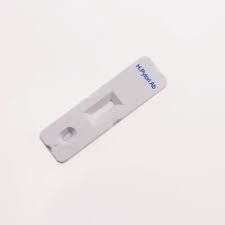H. Pylori Strips refer to various diagnostic tests designed to detect the presence of Helicobacter pylori (H. pylori), a bacterium associated with gastrointestinal diseases such as gastritis and peptic ulcers. These tests are available in different formats, including rapid antigen tests and antibody tests.
Types of H. Pylori Tests
1. H. Pylori Antigen Rapid Test (Stool)
- Description: This test detects H. pylori antigens in stool samples.
- Method: It uses an immunochromatographic assay that provides results within 10 minutes.
- Sensitivity and Specificity: High sensitivity (98.8%) and specificity (98.4%) make it reliable for diagnosing active infections.
- Use: Ideal for home testing or point-of-care settings[2].
2. H. Pylori Whole Blood/Serum Test
- Description: This rapid test detects IgG antibodies specific to H. pylori in whole blood or serum.
- Method: It is a lateral flow immunoassay that yields results in 3 to 7 minutes.
- Use: Suitable for use in clinical settings to aid in diagnosing H. pylori infections[3].
3. H. Pylori Home Test Kits
- Description: These kits allow users to collect stool samples at home and send them to a laboratory for analysis.
- Method: The test checks for multiple strains of H. pylori using advanced techniques like PCR.
- Convenience: Provides a comprehensive report on the presence of H. pylori, which can help guide treatment decisions[4].
Importance of Testing
- Diagnosis of Infection: Testing is crucial for identifying H. pylori as the cause of gastrointestinal symptoms, such as abdominal pain, bloating, nausea, and loss of appetite.
- Treatment Monitoring: Follow-up tests may be conducted to ensure that the infection has been eradicated after treatment.



